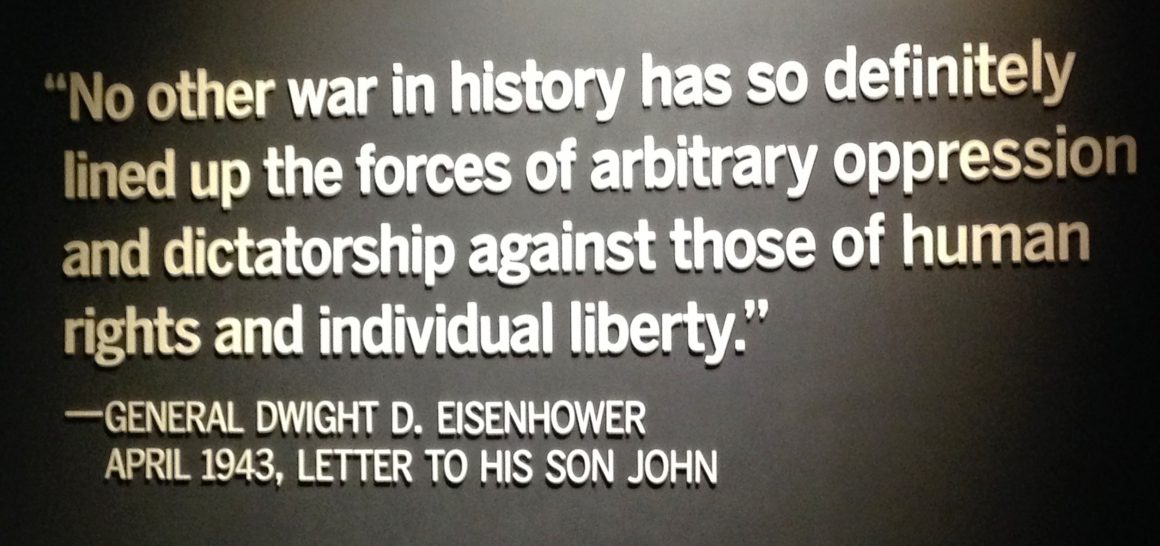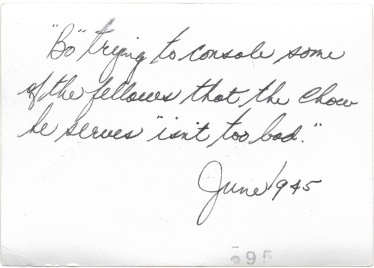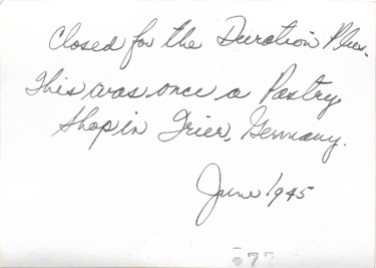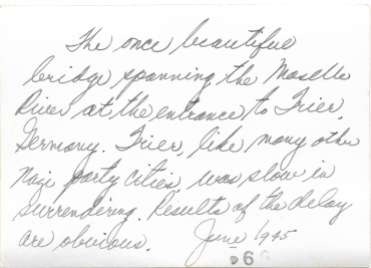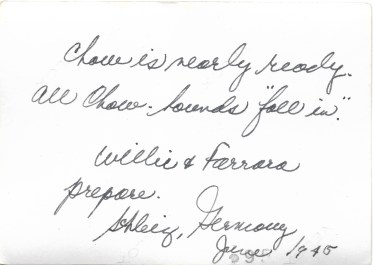Chuck and I near Schleiz, Germany.
Bernard McKenzie, June 1945
Old Glory flies in our pup tent city.
Bernard McKenzie, June 1945
Not many structures in Aachen, Germany stand intact today. Refusal of SS men to surrender brought only more havoc from our Air Force.
Bernard McKenzie, June 1945
The Germans, very much unlike the French, are here busy clearing the ruined city of Aachen, Germany.
Bernard McKenzie, June 1945
One didn’t have to scout around to find destruction in Aachen, Germany.
Bernard McKenzie, June 1945
Our Postal Chiefs. L.B. Kinlaw of Ayden, N.C. & Harvey Dunbrook from Cleveland.
Kathleen Dunbrook Leonard
